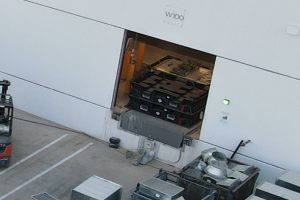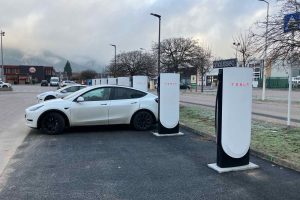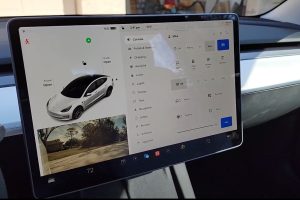Tesla has partnered with Dutch charging company Fastned to sue the German gas station giant Tank and Rast.
With the dramatic uptick in the need for EV chargers, particularly in Europe, it was only a matter of time before charger placement entered the courtroom. Today, Tesla has announced it is doing just that. It heads to court alongside the Dutch EV charging company Fastned to challenge the potential monopoly of German gas station operator Tank and Rast.
The case against Tank and Rast is quite complex, but it stems from the company’s unique position in its market. As pointed out by Tagesspiegel Background, who initially reported this story from Germany, Tank and Rast operates 95% of the gas station/rest stops along the German Autobahn. This occurred because the business was a government agency privatized in 1998.
More specifically, regarding today’s lawsuit, Tesla is suing because Tank and Rast recently acquired a controversial permit to build out EV chargers at its locations, which would quickly grant the gas station operator a nearly complete monopoly on charging along the Autobahn. At this point, Tesla cannot block Tank and Rast from placing chargers, but alongside Fastned, Tesla hopes to be granted the right to place its chargers at Tank and Rast locations as well, which the automaker argues, would ensure consumer choice availability.
Ahead of its scheduled court date, which is occurring later today, a Fastned representative stated that the two charging operators should have the opportunity to place chargers at Tank and Rast locations, not only as a way to expand consumer offerings but also because charging is fundamentally different than fueling, which Tank and Rast has previously received permitting for.
“It’s not just about this case, but about the competition in general,” said the Fastned representative. “Charging at service areas should become fairer, more open, and cheaper.”
The ruling, anticipated to be reached after a lengthy court battle, will likely be challenged, no matter the victor. Currently, the case is being held at the Higher Regional Court of Düsseldorf. Still, if appealed, it could head to a higher German court or even make its way to the European Court of Justice, an international court operated by the European Union.
The irony of the current case is Tank and Rast’s only recent interest in EV charging. Until recently, the convenience chain lacked any chargers at most of its locations, only receiving a minimal number of chargers through a partnership with regional charging operators and a European operator, Ionity.
With Europe’s largest car market on the line, there is no doubt that many will be watching this court battle to see if the historic Tank and Rast finally receives a serious competitor or if it will continue its reign as the sole operator along the popular Autobahn. The decision could be fundamental to Tesla’s operations in Germany and its charging plans for the rest of the continent.





